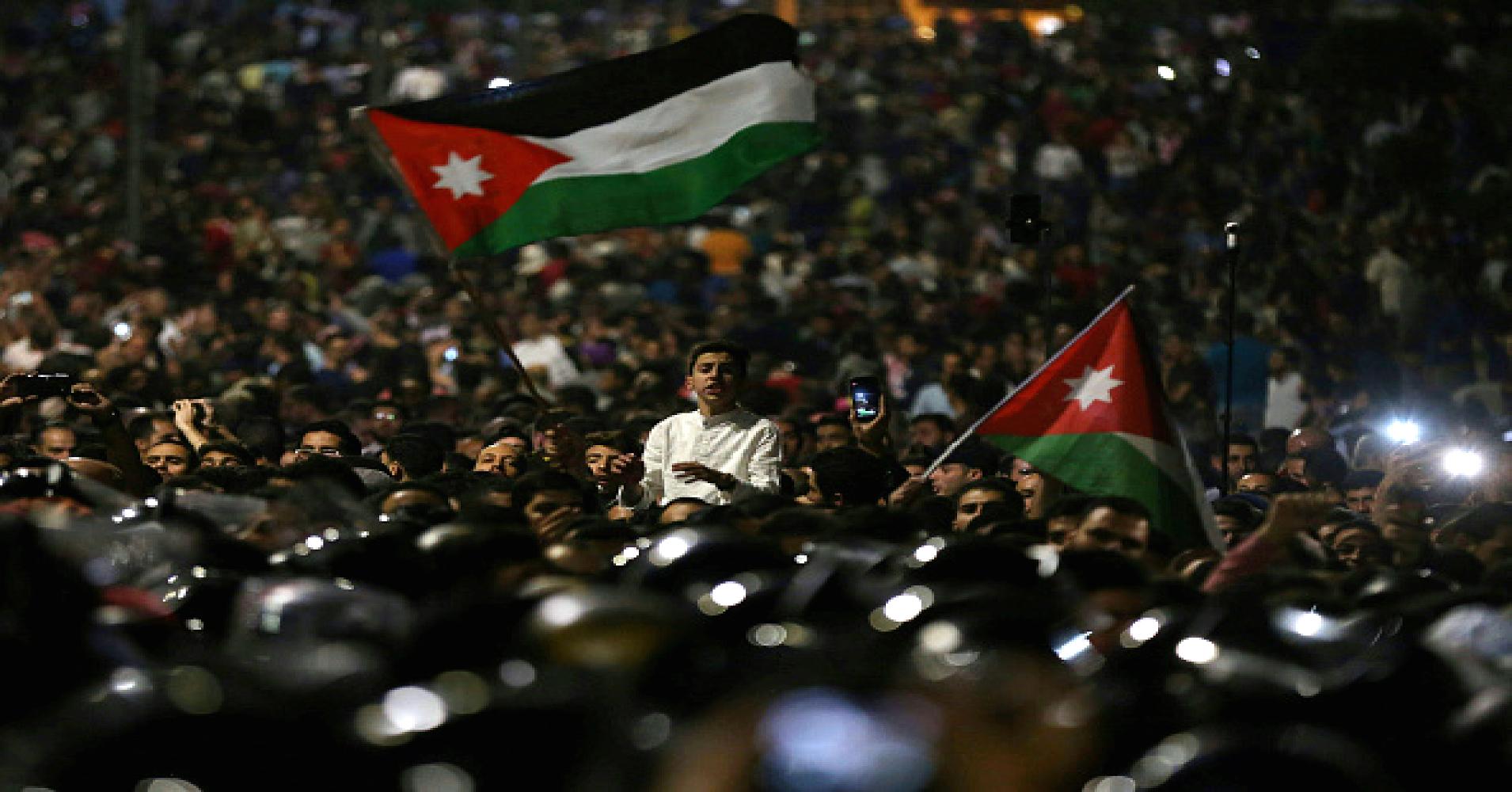
Jordanian Prime Minister Hani Mulki resigned from his government position Monday in the wake of several days of mass protests in the capital Amman — the country’s largest demonstrations in more than five years.
The resignation, reported by Reuters quoting an official source, was said to have been brokered during a meeting with the country’s King Abdullah II, who called for “national dialogue” in the wake of public anger over tax increases. The hike on taxes and price increases on many basic goods were imposed as part of an International Monetary Fund (IMF) austerity package designed to reduce the Middle Eastern country’s debt.
More than 3,000 protesters were gathered outside the prime minister’s office Sunday, according to various media reports, chanting slogans like “the ones raising prices want to burn the country” and “this is our Jordan, Mulki should leave.”
Jordan’s government, which has seen seven different prime minsters in the last 10 years, has been pursuing economic reforms as part of a $723 million three-year line of credit from the IMF.
The country of nearly 10 million has a 94 percent debt-to-GDP ratio, and the loan aims to cut this to 77 percent by 2021 through reforms that will “bolster economic growth” and achieve “gradual fiscal consolidation,” according to the IMF.
But the pain of the reforms has been too much for many ordinary Jordanians, who have seen fuel prices rise several times and electricity costs jump 55 percent since the start of the year.
A draft law on income tax, which would see taxes on employees raised by at least 5 percent and on businesses between 20 and 40 percent, is currently awaiting approval in parliament.
Sandwiched between several geopolitical conflicts and overwhelmed by a burgeoning population of refugees from Syria, Iraq and the occupied Palestinian territories, Jordan already has a 20 percent poverty rate, and youth unemployment hovers at around 40 percent.
But the fiscal measures were needed, according to Marcus Chenevix, Middle East and North Africa analyst at TS Lombard.
“Reform of some kind is certainly necessary. The current deficit is massive, more than 10 percent of GDP, government debt has nearly doubled since 2007 … The country cannot go on like this,” Chenevix told CNBC, adding that the unrest of the last week was a long time coming.
“Fundamentally, growth in the Jordanian economy has been slowing for a decade — something had to give.”
Long seen as a rare example of calm in a volatile region, the protests could herald a new and challenging period for the country. And the nascent turmoil is about more than the IMF’s loan program, said Dina Rezk, a professor of Middle East Politics at the University of Reading.
“This is not just about taxes,” Rezk said in an email note. “The recent protests are a symptom of a much more existential problem for Jordan: it is a tiny state, composed mainly of Palestinian refugees that is entirely dependent on handouts.”
Approximately 70 percent of Jordan’s population is of Palestinian descent, with 2 million living in refugee camps across the country, though most are well-integrated into society.
While a crucial security ally for the West and a beacon of stability in the region — and a top recipient of U.S. foreign aid — it is “particularly vulnerable to unrest in Palestine and global austerity initiatives,” Rezk said.

